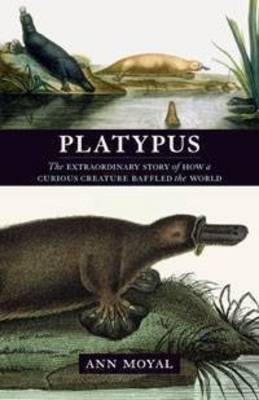
'In this remote part of the earth, Nature (having made horses, oxen, ducks, geese, oaks, elms, and all regular productions for the rest of the world) seems determined to have a bit of a play, and to amuse herself as she pleases.' - Rev Sydney Smith, Sydney, 1819.When the first specimen of a platypus arrived in England in 1799 it was greeted with astonishment and disbelief. What was this strange creature from the new colony of Australia? It defied rational explanation, with its webbed feet and duck's beak attached to what seemed to be a mammal's body - surely it was a hoax on the part of those cheeky new colonials?As eighteenth century naturalists struggled to classify the platypus, the little animal excited curiosity and sparked fierce debate in international scientific circles, drawing in leaders of zoology and comparative anatomy in Britain and Europe. This is the enigmatic story of a biological riddle that confounded scientists for nearly ninety years, challenging theories of creationism, evolution and the classification of species along the way.Secretive, elusive and beguiling, the platypus has continued to captivate public and scientific attention to the present day.
For Christmas a year and a half ago, my SIL bought me the chance to swim and play with a platypus at Healesville Sanctuary, the conservation facility that has been dedicated to the care and study of platypuses since the early 1900's. It was, hands down, one of the best, if not the best, wildlife experiences I have ever had.
I was besotted. Besotted in the way that almost required me being physically dragged from the pool when it was time to leave.
So imagine my disappointment when I started reading Platypus and discovered not so much a book about platypuses, but a book on the human history of discovery and research on platypuses. All of which apparently required an overabundance of killing, preserving and dissecting these wonderful, adorable, sweet animals. The first approximately 190 pages of the slim 206 page book was not much more than a recitation of what could pretty much be defined as harvesting.
Not. happy.
I went with three stars in a huge effort to be fair; it's relatively well-written (a bit dry) and for many this might have been exactly what they were expecting from the book. I recognise the dichotomy that often arises from my adoration of animals and my love of science. The last 15 pages or so was much more what I'd been expecting of the whole book and at least left me feeling somewhat upbeat, but on the whole, I did not like this book.
Reading updates
-
Started reading
-
16 June, 2017:
Finished reading
-
16 June, 2017:
Reviewed
